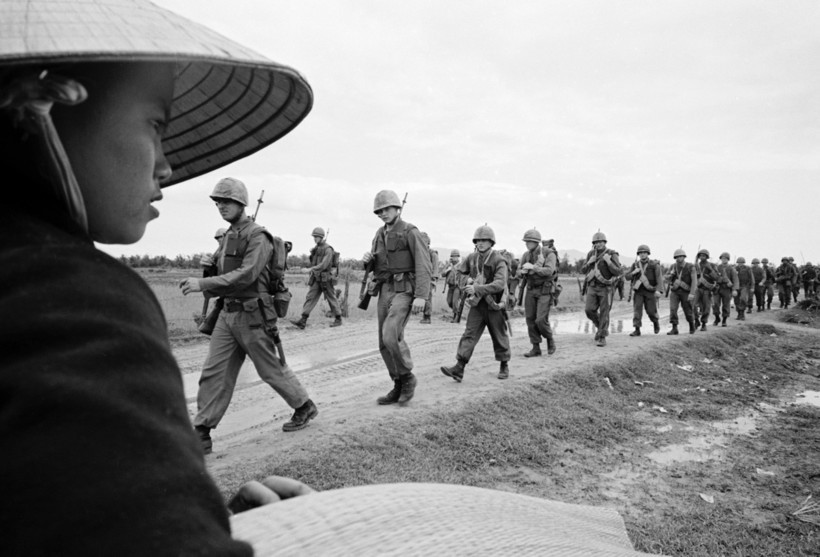If you make documentaries in the 21st century, Ken Burns is inescapable. You either have to accept his influence and learn his lessons, or reject it and try to do something different. The advantage of the latter is, fail or succeed, you at least won’t be boring. The advantage of the former is, making a piece that works.
Burns greatest filmmaking skill is achieving a steady flow of information that’s not too fast, and not too slow. His documentary series are timed for maximum absorption. He wants to give your brain time to wallow around in the details, while still learning the important lessons. That might sound easy, but in practice, it is insanely difficult. Sustaining interest over 18 hours of television is an Olympian feat.

Burns has not always succeeded. For his 2009 PBS series National Parks: America’s Best Idea, he slowed it way down, presumably to give those stunning HD vistas a little time to breathe. For one episode, my wife fell asleep during the opening credits. At least it was soothing.
The Vietnam War, Burns’ newest venture, more resembles his 2011 series Prohibition, which clocked in at a brisk 5 and a half hours. The presence of co-director Lynn Novick seems to be good for the finished product.
Watching our country’s best and brightest stumble into protracted disaster seems quite relevant in 2017. It wasn’t like there wasn’t a historical precedent. From Afghanistan to, well, Afghanistan again, low key meddling at the edges of empire has a tendency to spiral out of control. The entire story of America’s Southeast Asian misadventure was told already in the French colonial involvement in Vietnam. The American experience just lasted longer, because we had more money and bodies to spend.
There were multiple people who saw it coming and tried to warn against it, beginning with the very first OSS detachment in the country after the end of the Japanese invasion. But it was always the pursuit of short term political gain that keeps the war going. Just kick the can a little further down the road, and maybe things will get better.
The most interesting thing Burns has achieved so far is fleshing out Ho Chi Minh as a character rather than the yellow peril figure he had been portrayed as in the United States for so long. Ho was a nationalist at heart, and one of those rare revolutionaries who was such a skilled retail politician that he made the successful transition into governing. His first choice to achieve independence for his country was to go to the Americans. When we sided with his country’s colonial masters, he did the logical thing and went to the Chinese and the Russians. One of the most stunning moments of the first two episodes is when an American Green Beret commander casually says, yeah, we should have been on Ho’s side, because we started out as a colony and achieved greatness as an independent nation, and that’s what the Vietnamese wanted to do.
But stuff is always more complicated than that, and that’s the theme of The Vietnam War. Burns and Novick are great researchers, but they’ve outdone themselves. Like Burns’ masterpiece, The Civil War, it shies away from the notion that history is the story of Great Men doing Bold Deeds, and points instead to the forces and incentives pushing and pulling the actors. There’s no Lincoln or Grant in this story, but that makes it all the richer.
The Vietnam War